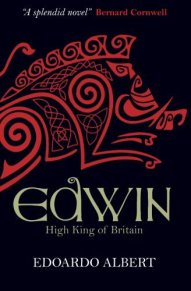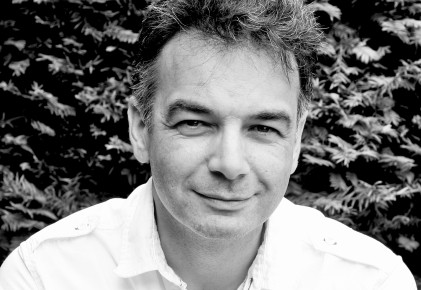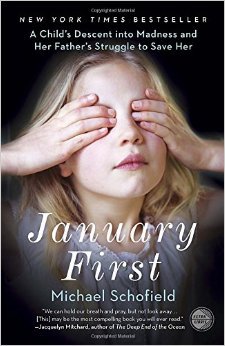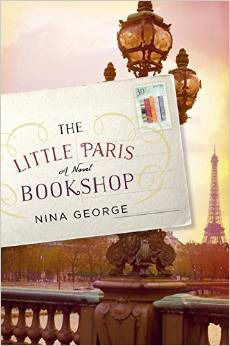

★★★½
The Northumbrian Thrones: Book I
There’s a bit of a thrill in reading a story whose exact dates are lost in the mists of time. In this first novel of Albert’s series, we are in the early years of the 7th century, perhaps in 616 or thereabouts. The Romans are long gone, leaving their ruins and their roads behind them; the raiders from the east have yet to come over the grey whale-road. Britain is split into kingdoms, roughly following the lines of the old tribal lands from the days of Boudica. But times are changing. A man who has moved from host to host, keeping one step ahead of the king who wants to kill him, has a dream of a united country, its petty kings subject to one overarching High King. It’s a grand dream, for a man who doesn’t even have a single kingdom to his name yet, but Edwin is shrewd and brave and has loyal men. As he inches his way back to power, his own rise is mirrored by that of a new religion, brought over from the Franks: a religion which will change the face of Britain forever.
I’ll be candid, through. When I started reading, I found Edwin a little dull. The words were all present and correct on the page, but they just didn’t drag me deep into the story as I wanted. That changed, eventually – but I had to push myself on until I found that magic point where suddenly it clicked. I think it was partly because I had trouble warming to the main characters: Albert is a little bit like Bernard Cornwell in that his men are warriors to the bone, not the inward-looking contemplative types that I find it easier to engage with (having said that, they’re brighter than dear old Uhtred). There were some more accessible characters on the sidelines: the young queen Æthelburh, who finds herself measured against Edwin’s previous wife; and Paulinus, the Italian missionary who finds himself bound to this hostile land, where vines wither and the winds never cease. It also isn’t easy to keep track when every second character has a name that begins Æthel-. Perhaps I also had difficulty because this period is one that (at least in its later stages) I’ve read about in two truly excellent books – The King in the North and Hild – so there was heavy competition. But let’s not dwell on it further: Edwin came to life at last, and by the end of the book I was curious to see how Albert would carry the story on to future generations.
Once you’ve adjusted to the no-nonsense, matter-of-fact characters, there is much to admire in the writing. Albert uses incidental details very effectively to anchor his story in its time. Even some apparently throwaway comments can be illuminating. For example, I found Æthelburh’s explanation of baptism striking: ‘In baptism the sin she carries from our forefather of old, the bloodguilt of his oathbeaking passed down through all the generations, is torn from her, like a diseased scab torn from a wound, that the flesh underneath may heal‘. See that? Not the sin of Eve, but that of Adam. Not the tempter, but the oathbreaker. It’s a tiny shift but one that speaks volumes about the way Christianity has developed over the years, and also one that indicates how this new faith was conceptualised in terms that the target audience could understand. There’s a similar jolt of semi-recognition a few pages later in the rendition of the myth of Wayland, the god-smith, who made such wondrous works for King Nidud that he was imprisoned on an island with his brother, and later made iron wings to escape. I’m always gripped by echoes of one myth within another. Had the myth of Daedalus come to Britain with ancient tin-traders and been absorbed into the native mythology? Intriguing stuff. I wish I knew more about what Albert’s sources were.
There are other moments which feel familiar in a different way. Whenever Albert described a great hall set up on its high platform, I couldn’t get Edoras out of my head, and there are scenes in which characters speak with a Tolkienesque solemnity. I was moved by elderly Cearl’s lament for his children, who have predeceased him:
All dead; all dead save me, their father. I have known sixty summers, but in truth they feel like sixty winters, and their chill never leaves my bones, nor their frost my hair… Now age sits so heavily upon me, and the young men no longer come to me, ring giver, for glory and war, and my hall is empty save for the most faithful of the faithful.
Isn’t that splendid? There’s an epic cadence to these words, and I think it was at this point that I really began to warm to the book and to understand what Albert was trying to do. I smiled again later, on recognising the motif of the sparrow finding temporary shelter from the storm within a warm and convivial hall. I need to read Bede. I was given that passage in my university interview and ever since it’s had a deep resonance for me. Later still I was struck by a conversation in which Edwin and Guthlaf contemplate a kingdom governed by this new faith. In a religion which champions peace, how can a king remain strong? He’s made great by his house-warriors, by the number of young men he can call on, and by the gold and plunder he gives out. None of these things are possible without war. Edwin’s world is thus riven with deep divisions, not merely in the matter of faith, but in the whole question of how to live. One cannot – at this time – be a true Christian and a great Anglo-Saxon king. The contradiction will have to be solved by future generations.
With plenty of shieldwalls, songs and feasts in smoky halls, this will surely appeal to fans of Viking fiction, but I’d also recommend it to those who normally shy away from raids-and-rapine novels. That isn’t what this is: Albert’s novel is more intelligent than pillage-by-numbers, especially when it taps into Bede and watches its characters weighing up their faith. Of course, being based on Bede does mean that we don’t exactly get a balanced picture of the pagan priest Coifi, who comes across as a charlatan, mad as a bag of cats and obsessed with gold… but I’m giving Albert the benefit of the doubt for now. I’m looking forward to seeing how things develop in the next novel with Oswald.
Do share your thoughts. Did anyone else find this hard to get into at first? Can you suggest any other novels set in the period between the end of Roman Britain (say, Sword at Sunset) and the rise of King Alfred (hello, Uhtred)?
Buy the book
I received this book from the publisher via Netgalley in exchange for a fair and honest review
Share this:




